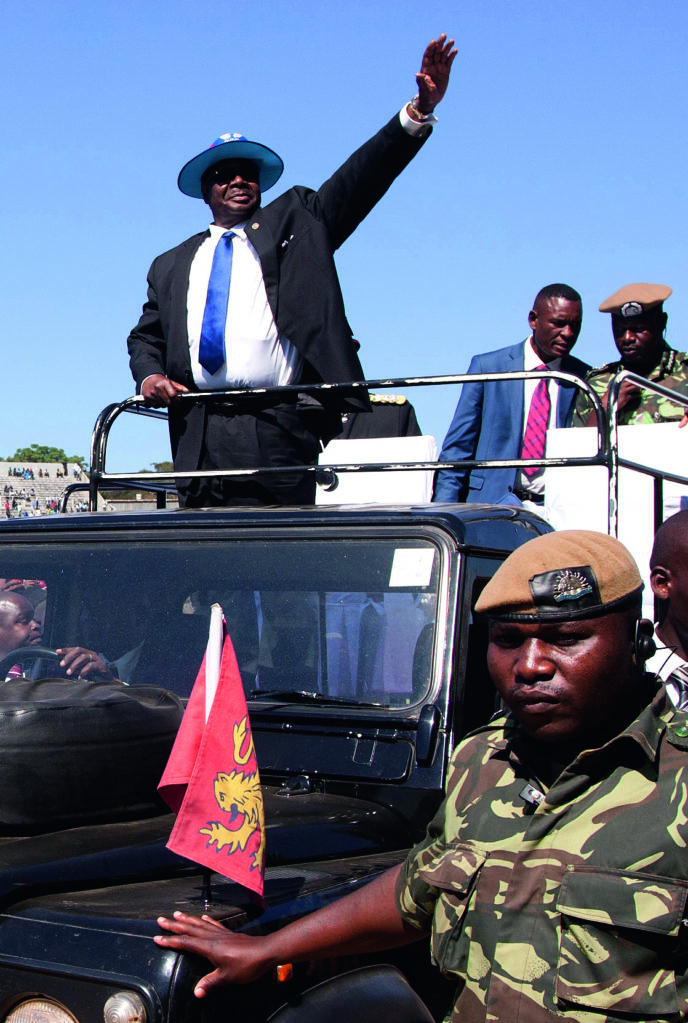Peter Mutharika may have won and Joyce Banda may have been booted, but it was a confusing election in Malawi.
The former British colony that was governed by the late dictator Hastings Kamuzu Banda for 33 years held its first tripartite polls on May 20.
Incumbent president Banda, Mutharika of the Democratic Progressive Party (DPP), Lazarus Chakwera of the Malawi Congress Party (MCP) and Atupele Muluzi of the United Democratic Front (UDF) were the leading candidates.

Malawi’s new President Arthur Peter Mutharika waves at people who gathered to witness his official inauguration as President at the Kamuzu stadium in Blantyre on June 2, 2014. Malawi, traditionally dependent on Western aid donors, will look for “new friends” in countries such as China and Russia, newly elected President Peter Mutharika said at his inauguration today. AFP PHOTO / AMOS GUMULIRA
More than a week later, Mutharika was announced as the country’s new leader amid allegations of rigging and manipulation.
Some of the anomalies are striking, such as a 38,000-strong constituency producing more than 184,000 ballots.
The results showed Banda beaten into third place by Chakwera.
Banda ordered the Malawi Electoral Commission (MEC) to stop the tallying of votes saying the electoral process had been marred but her call was reversed by the high court.
Tapera Kapuya, a political analyst with the African Democracy Forum, says there is a need to bolster independent institutions.
“There is a need to strengthen institutional capacity of electoral bodies to independently conduct and manage democratic elections,” Kapuya tells CNBC Africa.com.
“What we are seeing in Malawi is unfortunate given the advances the country has made in its democratic development. This election, if not managed properly, might see the country regress into conflict.”
Mutharika is the younger brother of president Bingu wa Mutharika who died in office in 2012.
The 74-year-old law professor takes the leadership of Malawi facing treason charges for attempting to conceal his brother’s death in an alleged bid to prevent Banda – then vice-president – from assuming power.
As a former foreign minister and his brother’s right-hand man, he was also a leading member of an administration widely blamed for bringing the small southern African country’s economy to its knees through years of mismanagement.
Dewa Mavhinga, a senior researcher at the Africa division of Human Rights Watch, says the country’s young democracy is facing a major test after previously demonstrating such maturity.
“The good thing about the Malawi elections is that the pre-election and voting period were fairly peaceful and without violence or other human rights abuses. Vote counting and the post-election period is now a litmus test of the maturity of Malawi’s democracy,” he says.
Mutharika reportedly agreed to a vote recount after heated exchanges with the MEC. He argued that the security of the ballot boxes was questionable.
According to the MEC’s Emmanuel Chimkwita-Phiri, 42 stations were to be audited and manual counting was conducted.
The votes may have been cast but the battle for democracy lies ahead.
